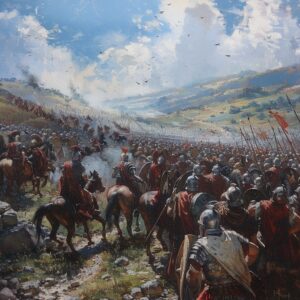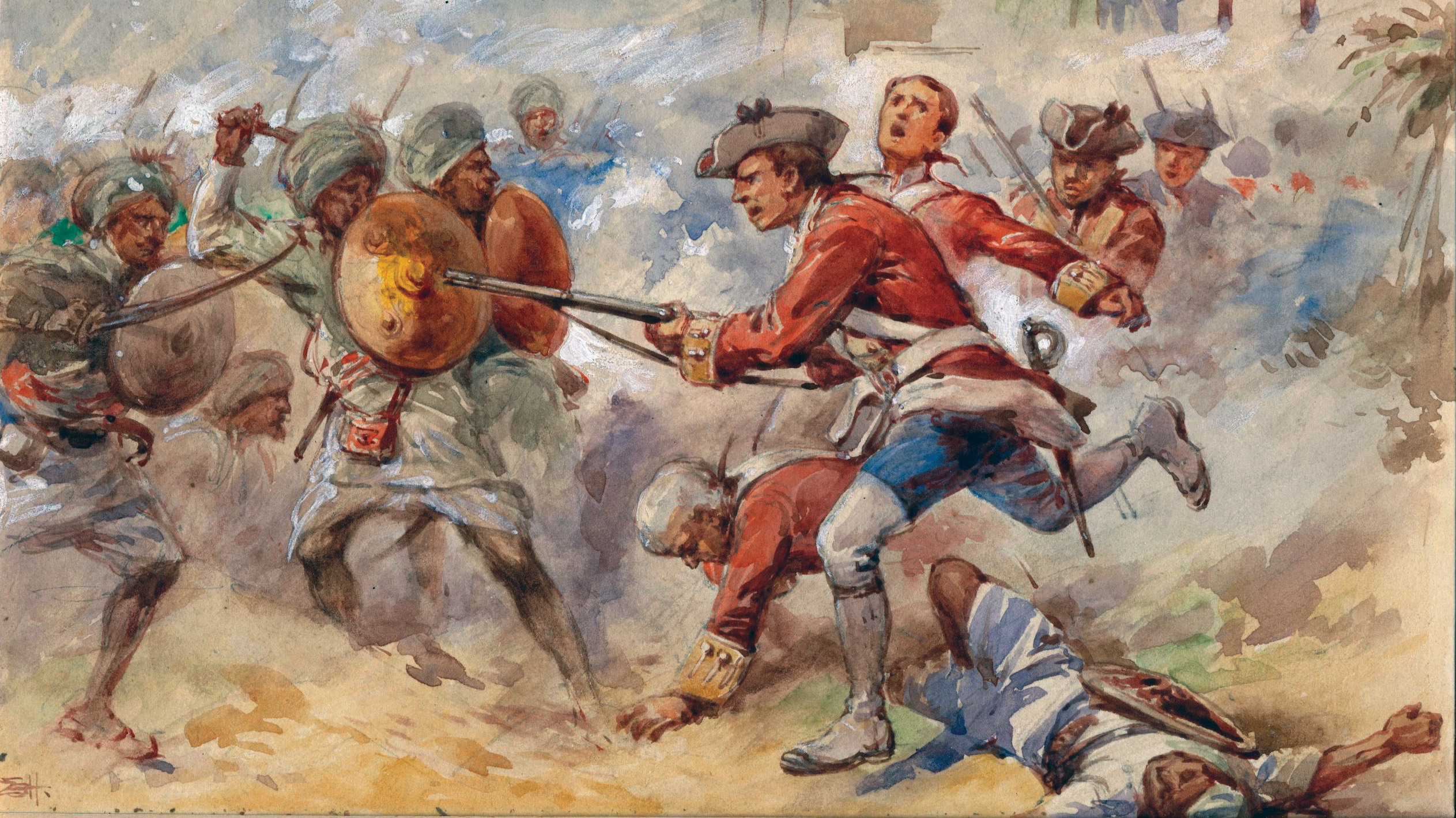Your basket is currently empty!
The Battle of Pydna (June 23, 168 BCE)

The Battle of Pydna marked a decisive moment in Roman history, solidifying its dominance over the Hellenistic world. Fought on June 23, 168 BCE, near Pydna in ancient Macedonia, it pitted the Roman Republic against the Macedonian forces of King Perseus. Roman Consul Lucius Aemilius Paullus masterfully led his legions to a crushing victory. The Macedonian phalanx, a formidable fighting force, ultimately proved vulnerable to the flexible Roman manipular system on uneven terrain. This battle effectively ended the Third Macedonian War, dissolving the Macedonian monarchy. King Perseus himself was captured, signifying the complete subjugation of Macedon. Pydna was a strategic triumph that greatly expanded Roman influence and control in the eastern Mediterranean. It stands as a testament to Roman military innovation and discipline.
Battle of Bannockburn Begins (June 23, 1314)

On June 23, 1314, the initial skirmishes and crucial maneuvers of the Battle of Bannockburn commenced, setting the stage for a monumental conflict. This battle was a pivotal engagement in the First War of Scottish Independence, fought near Stirling. Robert the Bruce, the King of Scots, led his forces against a much larger English army commanded by King Edward II. The Scottish strategy involved clever use of the terrain and defensive formations, including schiltrons. While the main engagement occurred the following day, the 23rd saw key cavalry charges and strategic positioning. The Scottish morale was high, despite being outnumbered. This battle would ultimately secure Scotland’s independence from English rule. Its outcome cemented Robert the Bruce’s legendary status as a national hero.
The Battle of Plassey (June 23, 1757)

The Battle of Plassey, fought on June 23, 1757, in Bengal, India, was a relatively small military engagement with colossal consequences. It marked a decisive victory for the British East India Company, led by the ambitious Robert Clive. The British forces faced the much larger army of the Nawab of Bengal, Siraj-ud-Daulah, and his French allies. Clive’s victory was largely due to treachery, as Mir Jafar, the Nawab’s commander-in-chief, betrayed his leader. This battle effectively dismantled the independent rule in Bengal and ushered in an era of British political dominance. It laid the foundations for the rapid expansion of the British Empire in India. Plassey is widely considered a turning point that led to two centuries of British colonial rule in the subcontinent. Its legacy is still debated regarding its impact on Indian history.
International Olympic Committee (IOC) Founded (June 23, 1894)

On June 23, 1894, a momentous occasion for global sport occurred with the founding of the International Olympic Committee (IOC). This historic event took place in Paris, France, at the Sorbonne. The visionary behind this initiative was Pierre de Coubertin, a French educator and historian. His goal was to revive the ancient Olympic Games and promote international understanding through athletic competition. The IOC was established as the supreme authority of the Olympic Movement. Its formation paved the way for the first modern Olympic Games held in Athens just two years later. This body has since become responsible for organizing and overseeing the Summer and Winter Olympic Games. The IOC’s founding underscored a belief in the power of sport to foster peace and cultural exchange worldwide.
Title IX Enacted (June 23, 1972)

June 23, 1972, marked a watershed moment for civil rights in the United States with the enactment of Title IX of the Education Amendments. This landmark federal law prohibits sex-based discrimination in any education program or activity receiving federal financial assistance. Its primary aim was to ensure equal opportunities for all genders in educational settings, from academic programs to sports. Title IX has had a profound and transformative impact, particularly on women’s participation in collegiate and high school athletics. Before its passage, opportunities for female athletes were significantly limited across the country. The law has helped to break down barriers and foster greater inclusivity in educational institutions. Title IX continues to be a cornerstone of gender equality in American education.
United Kingdom Votes to Leave the European Union (June 23, 2016)

On June 23, 2016, the United Kingdom held a historic referendum on its membership in the European Union, a vote commonly known as Brexit. The outcome was a decision for the UK to leave the EU, with 51.9% of voters choosing to “Leave” versus 48.1% who voted to “Remain.” This momentous result sent shockwaves across the political and economic landscape, both domestically and internationally. The referendum was the culmination of decades of debate regarding the UK’s relationship with Europe. Following the vote, the country entered a period of intense negotiations and political turmoil. Brexit officially took place on January 31, 2020, followed by a transition period. The decision has had significant ramifications for trade, immigration, and the UK’s global standing.

